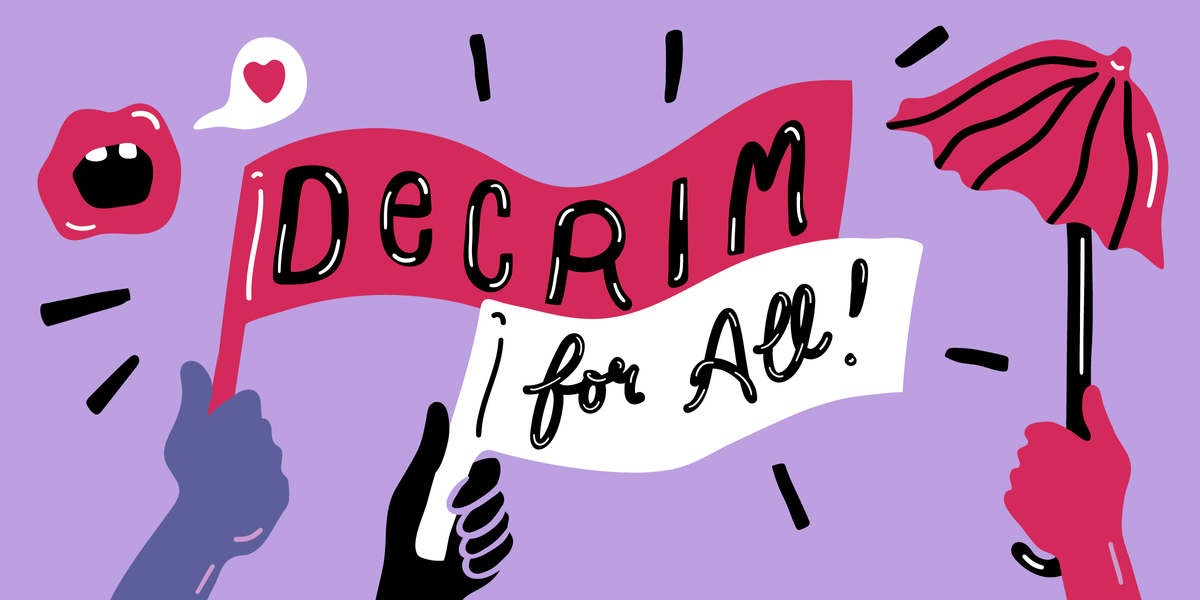
published on 21 april 2022
Lees dit artikel in het Nederlands
After many years of hard work by sex work activists and advocates, sex work has finally been decriminalised in Belgium. Following decriminalisation in New Zealand and regions of Australia, Belgium is the first country in Europe to change the law so that sex workers are no longer treated as criminals.
Sex work in Belgium used to have a same sort of status as weed in the Netherlands, illegal but ‘gedoogd’. It was highly regulated by the government - a disaster for sex workers themselves. The law, in combination with varying complex, confusing local restrictions meant that sex workers in Belgium weren’t allowed to advertise, rent a workspace, get insurance, a bank account or even make plans together. Engaging in any mutual help, from arranging bookings to discussing our working conditions could be classed as “pimping”. Basic labour rights for self employed people, such as payments to cover unemployment, maternity or illness were also out of reach for Belgium based sex workers.
Lobby
UTSOPI, Belgium’s only self organised sex worker collective and union, has been speaking at Parliament and lobbying politicians to change the law. The group fought hard for more support for sex workers during the global pandemic - a situation which enabled them to highlight sex workers’ tough conditions and precarity, and challenge outdated sex work laws which had been in place since the 1950s.
Rights
In March, a law was passed in Parliament so that sex work was no longer classed as a crime, while giving sex workers some social and employment rights. Sex workers can now legally hire third parties such as accountants and drivers to support them in their work, along with being able to advertise, hire venues, and apply for loans and pensions that are linked to their earnings.
This is a fight to shake society out of its notions of normality and heteronormativity, patriarchy and contemporary forms of slavery and colonisation.
UTSOPI have a simple message for sex workers in the Netherlands and other countries:
"Please don’t give up, this is about more than only our rights. Don’t forget that we can make the earth shake. This is a fight to shake society out of its notions of normality and heteronormativity, patriarchy and contemporary forms of slavery and colonisation. We need to decolonise the body."
As a European first, this change in the law represents an incredible achievement for not only Belgium, but for every European country. This legal change could bring us one step closer to the decriminalisation of sex work in the Netherlands, and the rest of Europe.

